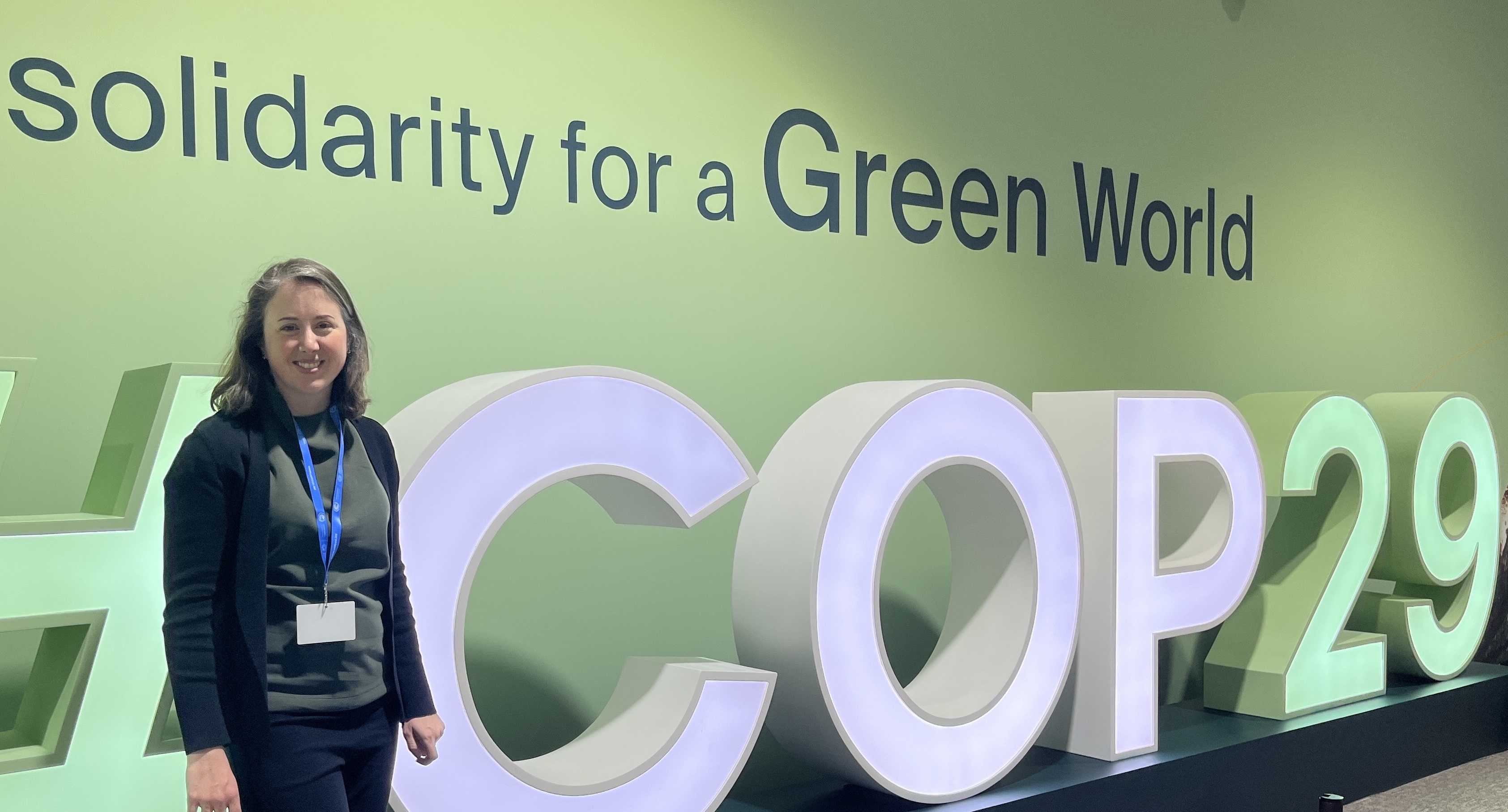The 29th Conference of the Parties (COP29) to the UN Framework Convention on Climate Change (UNFCCC) kicked off last week in Baku, Azerbaijan. The conference comes on the heels of the U.S. General Election, which has cast a shadow of uncertainty on the future of climate policy, leaving some wondering how the U.S. will tackle climate change going forward.
Professor Caitlin Grady, the leader of GW’s COP29 delegation, can tell you how – through continued commitment to action and participation in the climate conversation. “People at all levels of government continue to take substantial climate action,” Grady said. “All of the major U.S. cities send delegations to COP, and state and local leaders will be at the conference making commitments regardless of who is in the White House. The climate action train has left the station, and that will continue.”
COP29 hosts delegations from around the world, including those of policy leaders, businesses, and academic institutions. Professor Grady is thrilled to lead this year’s GW delegation, given her expertise and passion for creating a more secure and sustainable environment. Professor Grady has played an integral role in climate policy conversations throughout her career and is excited about the opportunity to do so on behalf of GW and alongside some of GW’s brightest climate-focused students.
In 2016, Professor Grady represented the Department of State on the team that helped secure the Kigali Amendment, an amendment to the Montreal Protocol on Substances that Deplete the Ozone Layer (or the Montreal Protocol) that seeks to phase down the use of potentially harmful hydrofluorocarbons (HFCs) in air conditioners, refrigerators, and aerosols.

Professor Grady shared that her experience with the Kigali Amendment and the Montreal Protocol made her optimistic that international environmental treaties can push forward a global agenda. “The Montreal Protocol was the first treaty to achieve universal ratification from every country in the world. It's an interesting success story of different views coming together to take steps forward.”
Although the Montreal Protocol is structurally different than the UNFCCC discussed at COP, Professor Grady believes that COP attendees can still learn from the Montreal Protocol and other collective agreements in the climate space. “Collective agreements are useful, important, and worth continued investment,” Grady concluded.
Those most impacted by climate change have not always been afforded seats at the table for climate-related conversations. It is critical that we center voices from the most impacted communities in these conversations, particularly those of indigenous people, frontline communities, and youth advocates.
COP29 offers a platform to amplify these voices, especially those of young advocates like Anna Shah, who attended COP28 last year as a member of the GW delegation. Of the opportunity to participate in COP28, Shah said, “It was an honor to be chosen and recognized for all the work I had done on campus to progress sustainability. A year later, I still cannot believe I had this once-in-a-lifetime opportunity. That I was part of the action, part of the conversation, surpassed all my expectations.”
In the face of unprecedented geopolitics and catastrophic weather events, COP29 will be a space for climate advocates to come together in service of a shared goal – to develop plans for how we can limit global temperature rise to 1.5 degrees C to avoid some of the most devastating impacts of climate change.
Professor Grady is optimistic that COP29 will be an opportunity to build momentum towards ambitious goals for decarbonization, sustainable growth, and equitable green jobs, all while creating economic stability across different communities worldwide. Collective, decisive action like that at COP29 poses a promising path forward.


